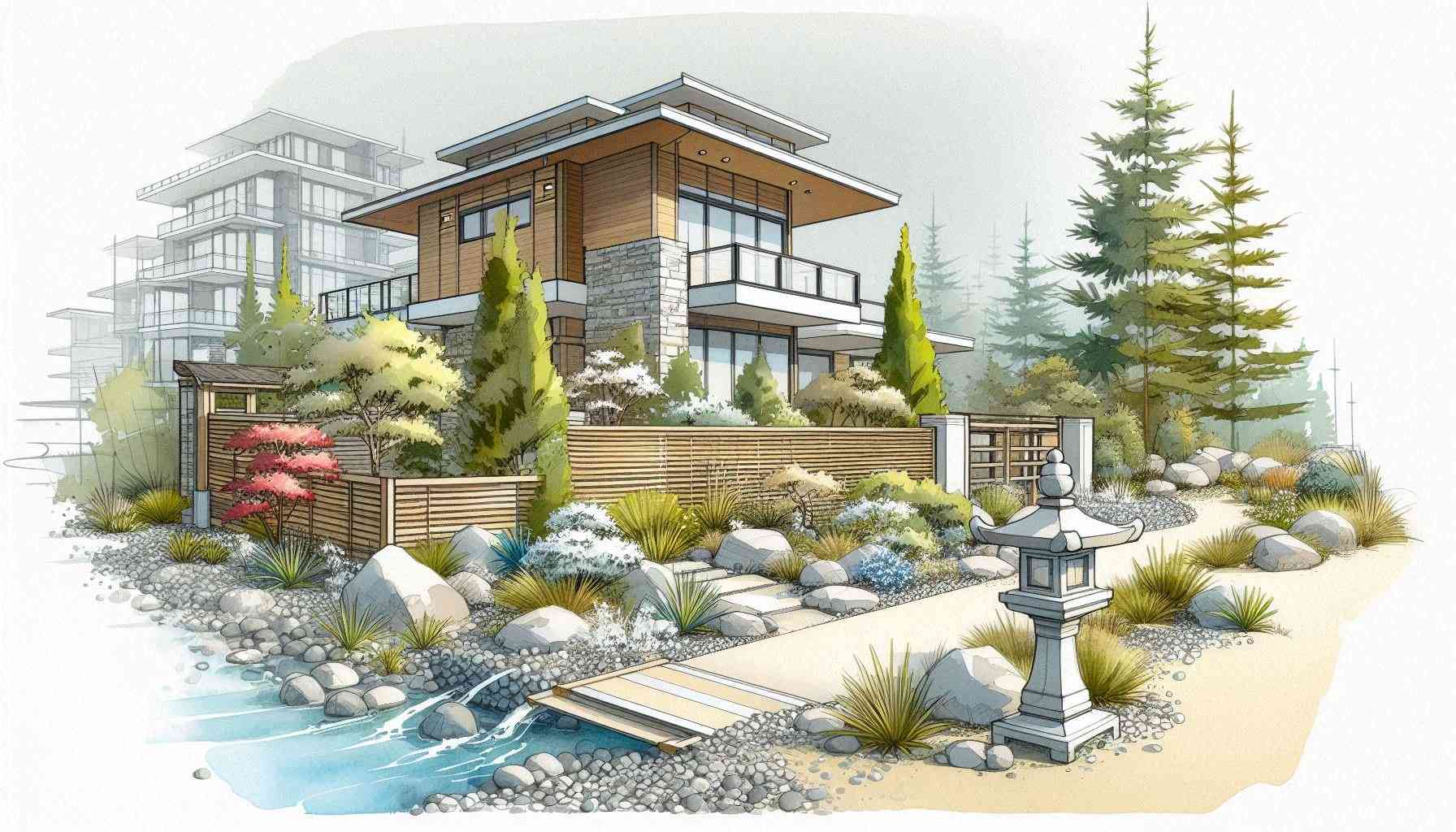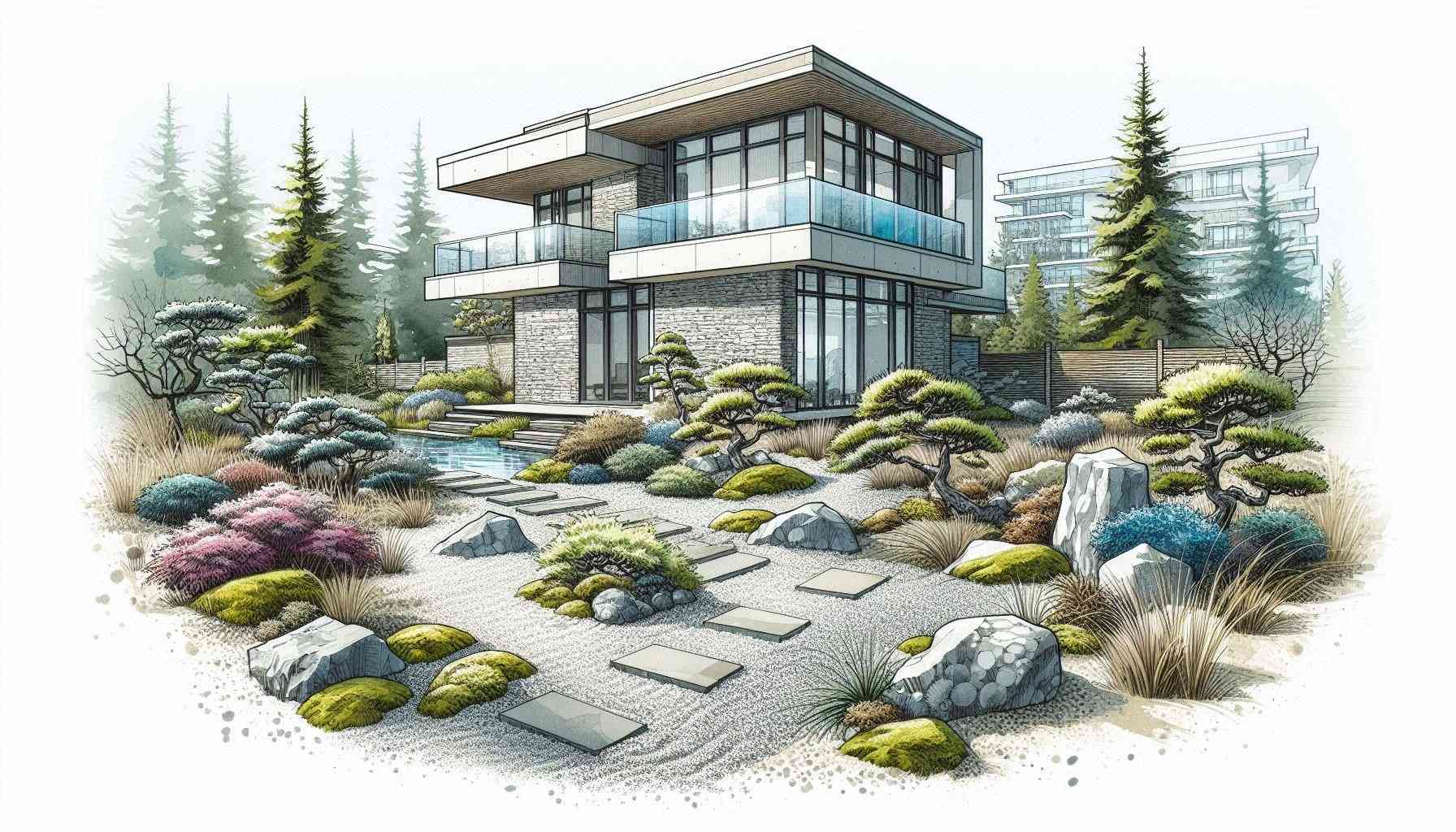Japanese-Inspired Gardens in Calgary?
Get Your Questions Answered
Here are our answers to some common questions asked about our landscaping services and Japanese garden design. For clarity, we have called it: Calgary Residents' Guide to Japanese Landscaping.
What is a Japanese-Style Landscape?
A Japanese-style landscape emphasizes simplicity, balance, and harmony with nature. In Calgary, we adapt this style to:
⯈ Incorporate native, drought-resistant plants that thrive in our climate.
⯈ Use local stones and materials to create authentic-looking features.
⯈ Design water-efficient gardens that respect local water restrictions.
Our designs blend Eastern aesthetics with Western practicality, creating serene outdoor spaces that are both beautiful and sustainable in Calgary's unique environment.
What is a Zen Dry Garden Used For?
A Zen dry garden, or karesansui, is designed for contemplation and mindfulness. In Calgary, these gardens offer:
⯈ A low-maintenance, water-wise landscaping solution.
⯈ A peaceful retreat from urban stress.
⯈ Year-round beauty, even during our harsh winters.
We can create a Zen dry garden that serves as a meditative space while perfectly suiting Calgary's climate.
How Do Zen Gardens Benefit Calgary Homeowners?
Zen gardens offer numerous benefits, especially in the semi-arid climate of our bustling city:
⯈ Provide a water-efficient alternative to traditional lawns.
⯈ Create a year-round outdoor space for enjoyment, even in winter.
⯈ Promote relaxation and stress reduction.
⯈ Increase property value with unique, low-maintenance landscaping.
Our designs ensure these benefits while adapting to Calgary's specific environmental needs.

What Are the Key Principles of Japanese Garden Design?
At Ishidoro Zen Gardens Inc, we apply these principles to Calgary landscapes:
⯈ Simplicity (Kanso): Using clean lines and minimalist design.
⯈ Balance: Creating harmony between different elements.
⯈ Asymmetry (Fukinsei): Avoiding rigid symmetry for a more natural feel.
⯈ Borrowed Scenery (Shakkei): Incorporating distant views into the garden design.
We tailor these principles to complement Calgary's natural beauty and urban landscape.
How Do You Adapt Japanese Gardening Techniques for Calgary's Climate?
We are innovating with our Landscaping Signature Approach, which includes:
⯈ Designing for year-round interest, including winter-friendly features.
⯈ Selecting cold-hardy plants that mimic traditional Japanese species.
⯈ Implementing water-wise irrigation systems and smart options.
⯈ Using rocks, gravel, boulders, and mulch to retain moisture and reduce water needs.
We ensure your garden thrives in Calgary's unique climate while preserving authentic Japanese aesthetics. Our trademarked landscaping services can be defined as:
( [ Chinook Resistant Designs ] + [ Prairie Zen Fusion ] ⟹ [ Urban Oasis Creation ] + [ Four Season Appeal ] ) ™
Can You Create a Japanese-Inspired Garden in a Small Space?
Absolutely! Japanese garden principles are perfect for small spaces. We offer:
⯈ Miniaturization techniques to create the illusion of larger landscapes.
⯈ Vertical gardening solutions for balconies and small yards.
⯈ Multi-functional designs that maximize limited space.
Our expertise allows us to create serene retreats even in the most compact Calgary properties.
How Do I Start Creating a Japanese-Inspired Garden in Calgary?
You can go the Do-It-Yourself way, or contact Ishidoro Zen Gardens Inc. The process is simple:
⯈ Contact us for an initial free consultation.
⯈ We'll assess your space and discuss your vision.
⯈ We'll create a custom design tailored to your property and Calgary's climate.
⯈ We'll handle the installation, ensuring every element is perfectly placed.
⯈ We'll provide maintenance guidance to keep your garden beautiful year-round.
Let's work together to bring a piece of Japanese tranquility to your Calgary home!
Are Japanese-Inspired Gardens Suitable for Calgary's Water Restrictions?
Yes, indeed! Our designs are specifically created with water conservation in mind:
⯈ Zen dry gardens require minimal to no watering.
⯈ We use drought-resistant plants and efficient irrigation systems.
⯈ Our designs incorporate gravel, rocks, and mulch to retain soil moisture.
⯈ We can create beautiful landscapes that comply with all local water use regulations.
As a matter of fact, our Japanese-inspired gardens are a perfect solution for environmentally conscious Calgary homeowners.
